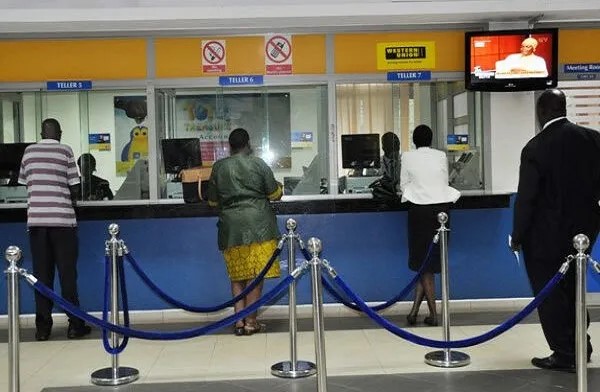ILO commemorates Social Justice Day

What you need to know:
The world commemorates the 20th ‘World Social Justice Day’ today under the theme ‘Closing the Inequalities Gap to Achieve Social Justice’. The day is of particular significance to the International Labour Organisation (ILO), which since 1919 has pursued its mandate to promote social justice through decent work.
The world commemorates the 20th ‘World Social Justice Day’ today under the theme ‘Closing the Inequalities Gap to Achieve Social Justice’. The day is of particular significance to the International Labour Organisation (ILO), which since 1919 has pursued its mandate to promote social justice through decent work.
The aspiration for social justice, through which every working man and woman can claim freely, is as great today as it was when the ILO was created a century ago.
As the ILO celebrated its centenary last year, the importance of achieving social justice is ever more pressing, with the rise in inequality and exclusion, which is a threat to social cohesion, economic growth and human progress.
With climate change, demographic changes, technological development and, more generally, globalization, we are witnessing a world of work that is changing at an unprecedented pace and scale.
These challenges have to be addressed to offer possibilities for the achievement of social justice in an ever more complex world of work. The ILO which is a UN specialised agency dealing with labour issues aims to promote rights at work, encourage decent employment opportunities, enhance social protection and strengthen social dialogue on work related issues.
“Social Justice is at the heart of the ILO Centenary Declaration for the future of work adopted at the 108th International Labour Conference in June 2019. The declaration calls for the creation of a just and sustainable future by investing in people through a human centered approach to the future of work,” says Mr Wellington Chibebe, Country Director of the ILO for Tanzania, Burundi, Kenya, Uganda and Rwanda.
In Tanzania the ILO works with the government through the Ministry of Labour, Youth, Employment, Youth and persons with disability and other relevant ministries and institutions to implement various programmes in collaboration with workers’ and employers’ organisations.
These programmes include amongst others employment creation, entrepreneurship, social protection, labour law compliance, HIV/Aids, and the elimination of the worst forms of child labour.
On this year’s commemoration of social Justice Day the ILO highlight s the role of inclusive skills development policies and strategies in closing the inequality gap as this is one of the areas that ILO to continue working on with the Government.
The ILO, in partnerships with its constituents (Government, employers’ and Workers’ organizations) since 2014 and prior to that, the ILO has been providing technical support to the Vocational Training Authority (VETA) in establishing Recognition of Prior learning (RPL) System targeting people who acquired skills informally, have functional levels of competencies but do not have formal qualifications.
The RPL system provides competency based recognition and certification of skills acquired outside the formal training system, which often is not certified. It is based on the knowledge that people acquire skills anywhere and anyhow and throughout.
Closing the Inequalities Gap through Recognition of Prior Learning (RPL)
Imagine having trained for years to be a skilled expert in a certain field but have no qualification, certification or proof of competency of your skill.
Unfortunately, a majority of Tanzania’s labour force falls under this bracket due to the prevalence of informal skills acquisition in the country. Mary Timothy (26), a visually impaired cook and Simon France (41), a mason from Singida are two of Tanzania’s informally trained but competent workers who have benefited from the RPL programme.
Due to lack of formal qualifications, Mary and Simon often find themselves from lacking economically marginalized. They have limitations in accessing decent jobs despite their competency levels being equally or sometimes more than those who trained in formal training institutions.
They are left with little options except to take on lower income jobs and smaller contracts in order to eke out a living. RPL is a process of identifying, documenting, assessing and clarifying informal learning against formal education and training standards. RPL provides an opportunity for people to acquire qualifications without going through a formal education or training programme.
It is implemented by VETA with technical support from the ILO to set mechanisms for social inclusion by allowing skilled workers who hitherto had no formal recognition and certification to get formal VETA certification.
Mary, a mother of two girls never completed high school, and bears the burden of supporting her family while being visually impaired.
Fortunately, she learned through informal apprenticeships, valuable skills and is now competent in cooking from a small restaurant kitchen at her hometown in Singida.
With no formal recognitions of competencies acquired, Mary got a job with a local food vendor where there is decent work deficits. For example, there is no working contract, the pay is below the national minimum wage and has no social protection.
Like Mary, Simon France learned his craft while still a youth through informal apprenticeship from his father who is a master crafts person in construction. The father of four with primary school level education, he had to acquire skills anywhere he could. He eventually started working as a brick layer at a hospital construction site while still a teen.
“I learned a lot about construction from the engineer in charge who seemed to take a liking to me after seeing that I was eager to learn. A few weeks into the job the engineer gave me access to the building material and told me I could join his team.”
By 1998 Simon was working offered informal jobs at construction sites as a builder. He was relieved to have a source of income, but he was aware of his shortcomings due to lack of formal qualification which often left him working small and underpaid jobs.
ILO research shows that informal apprenticeships which both Mary and Simon went through are often characterised by unsafe working conditions, long working house, low or no wages or allowances, strong gender imbalance and lack of pathways from informal to formal work.
Through RPL program Mary has passed her assessment exam in Food production and is waiting for her certificate. “I want to work in a bigger kitchen, a hotel or restaurant where I can learn from professionals,” she noted.
RPL certificate is raising her hopes of achieving that dream .For Simon, the change has been significant passing his RPL assessment in 2017.
“The two week process went very fast, I love building, it’s in my blood so the assessment process was very easy for me,” he noted. Simon is now one of more than 3600 candidates to pass the RPL assessment and gain a VETA certificate in their occupation. After attaining his VETA certificate in Masonry Simon increased his ability to attract more and bigger clients like the government which has contracted him to build a total of five school buildings around Singida. It was difficult for me to secure government contracts before this programme.
I earn more from my work now because I have the certificate. Since getting my VETA certification I can say that my income has increased by 100 per cent,” he said. Simon has expanded his business geographically across different regions and districts and has recently finished work in Dodoma and regularly builds across the rural Singida, managing up to 30 workers.
He currently has 10 people working under him permanently. Simon also received training through RPL on; targeting and communicating with clients, managing a team, pricing and book keeping as well as business planning.
“The programme has showed me that there is no end to learning. I want to learn more about technological advancements in my field so I can be a better constructor,” he said.
The success of the RPL programme has lead the government of Tanzania to expand the programme targeting 10, 000 candidates and training of 240 more assessors in 2019. The government has also added more occupations for assessment from the initial 4 (masonry, motor vehicle mechanics, food production, food /beverage services and carpentry) and added 5 more occupations (tailoring, wielding and metal fabrication, plumbing and pipe fitting, electrical installation and auto-body repair).
The ILO continues to work with national partners like VETA to ensure the RPL system is strengthened and the process is of quality and cost effective. The ILO and VETA is currently exploring innovative means in particular digital platforms to improve quality, transparency and reach more people who needs RPL services. It is the belief of ILO that Programmes such RPL provides opportunity to closing the inequality gap and thereby contribute to social justice.


